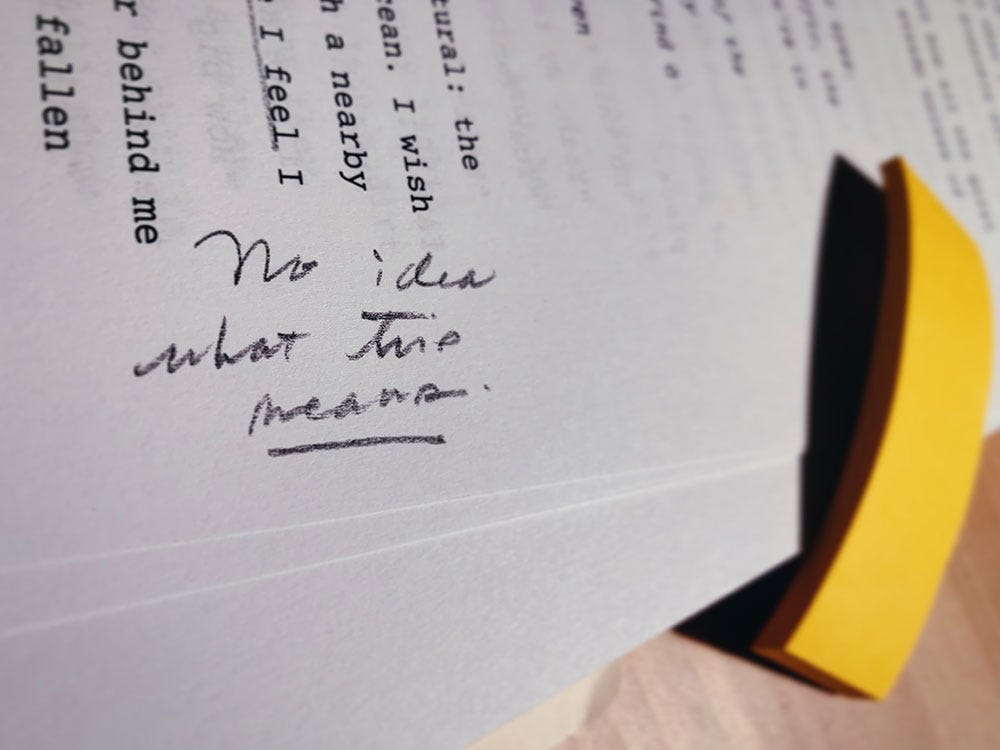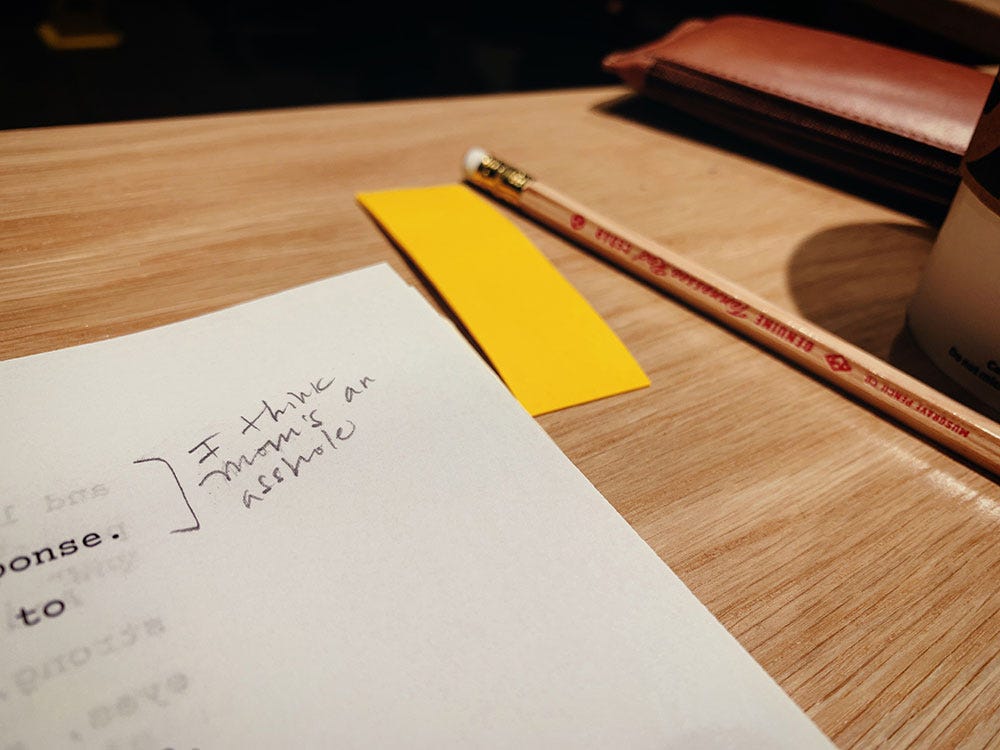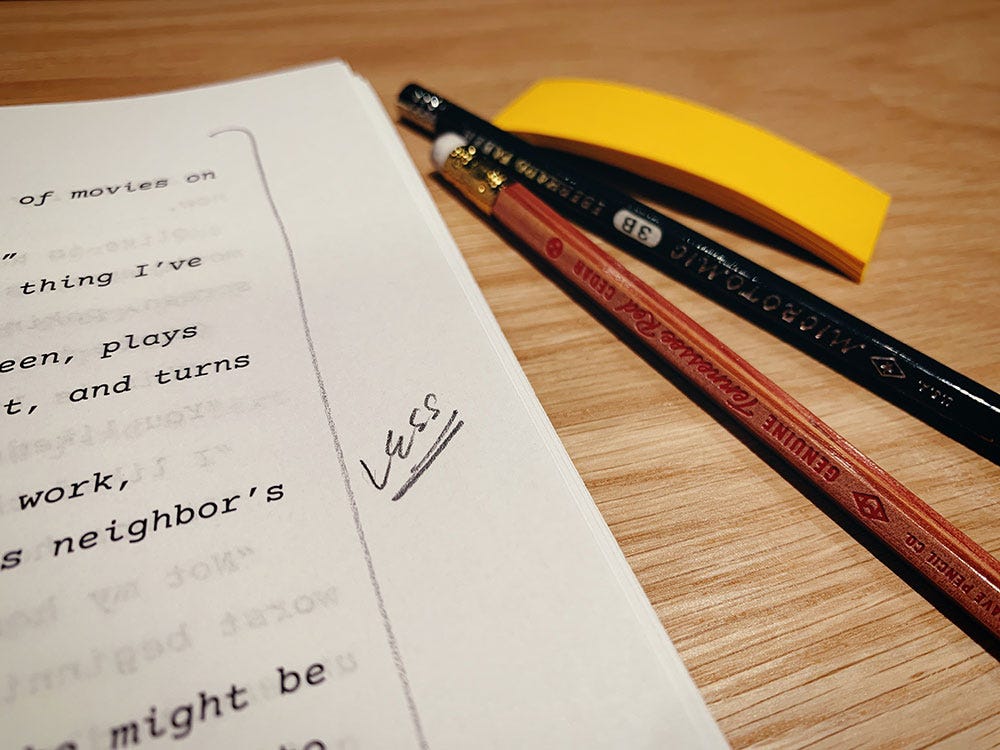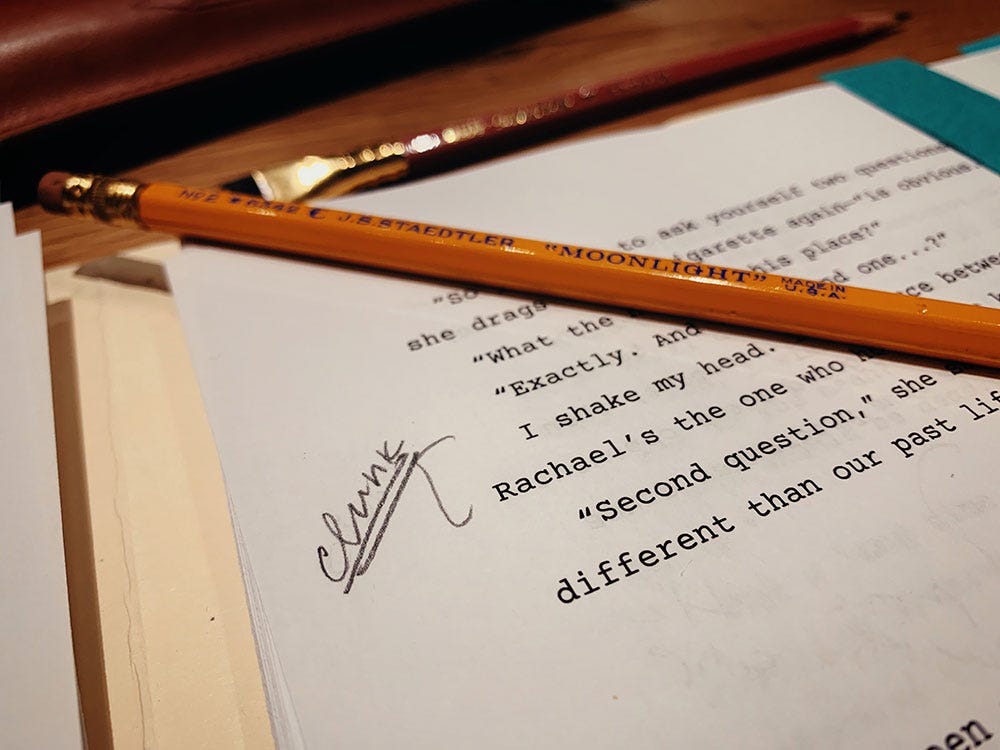It takes as long as it takes
In this newsletter: A few words in praise of the revision process, even when it sucks.
First time seeing this newsletter?

The last week or so, I’ve been back at work on my current project, a young adult novel that’s given me all sorts of indigestion. (Sometimes a project is bigger than you thought it was going to be; sometimes it’s more complicated than you hoped it would be.) Quarantine aside, writing a novel is almost never a smooth journey. Well, in my experience.
Here are a few things I’ve learned about turning a shitty draft into a not-so-terrible one.
It takes as long as it takes
John McPhee said that in his excellent book on the craft of editing and revision, Draft No. 4: On the Writing Process.
He also said, in the same book:
Sometimes in a nervous frenzy I just fling words as if I were flinging mud at a wall. Blurt out, heave out, babble out something—anything—as a first draft.
Which helps explain why it takes as long as it takes.
Don’t share the first draft
Believe it or not, this is a lesson you might have to learn more than once. I think I’ve just now finally gotten a hand on this, after sending the first draft of my current project to my editor, like, two years ago. (Her response was a wholly justified, “Um…what is this?”)
The first draft you share with other people better not be your first draft. Share your third, if not your fourth. (See Mr. McPhee.)
Or fifth.
Print your draft
My current draft is my fourth, and I think my book has just begun to sort out what it is. I think there are probably another two or three good drafts to go before it’s good. But the next one, at least, should make it…better.
In the month before quarantine, I huddled over my printed manuscript and read it with (somewhat) fresh eyes, which led to marginalia like these:



And these, of course, aren’t my only notes. Nearly every page of the manuscript has scribbles and slashes and underlines.
Make a list of broken things as you go
It’s tempting to edit as you write that first (or second or third) clunky draft. Resist as long as you can. Ever been in a meeting where you’re all trying to solve Problem A, and someone’s like, Well, you know, that brings to mind Problem X, and then you all get derailed because X makes someone else think of Y, and then someone mentions lunch, and then two days have passed and you’ve gotten nothing accomplished? A good project manager will take Problem X and stash it in a parking lot of Ideas that are worth exploring but for god’s sake not NOW.
Do the same thing with your work-in-progress. Notice on page 146 that you forgot about your second lead character way back on page 27, and left them out of everything? Parking lot. Keep writing. You can fix it later.
I keep a running list of things to fix later in Evernote. Right now, as I’m working my way through the novel, making corrections based on all those pencil scribbles? Anything that will take me more than five seconds to address goes into the parking lot. They pile up! There are well over a hundred tasks of significant effort waiting for me.
But it’s not my job to think about them yet.
Draft 5’s the draft you share
Well, at least, it’s the draft I think I’m going to share. But you have to share wisely. You’ve stitched all sorts of problems up, nothing seems to be leaking out, things even smell pretty okay. But you’re too close to the manuscript to see that you’ve got a stitched-up Frankenstein’s monster of a book. Your nose has acclimated to the rotten stink.
Share it with someone you trust to point out those oozing seams. Be gracious and appreciative of their notes, and the time they’ve spent to help you improve your story. Prepare yourself to return the favor when they need it.
Then get the scalpel and perform a little reconstructive surgery on your patient.
Then deliver draft 6.

It takes as long as it takes, remember?
And sometimes it takes a little longer. Adjust your expectations, prepare yourself for some work. Buckle down. Live in this process. If you’re anything like me, it’s this part you’ll look back on with a sense of nostalgia, not the writing part. The writing part’s easy. Editing yourself? That’s hard. But so rewarding.
It takes as long as it takes. I could say that about our global condition right now, too. I don’t know about your hometown, but I’m dismayed to see how quickly we’re rushing to reopen the world. Someone on Twitter said (I’m paraphrasing, because I can’t find it now):
just because you don’t want to think about the virus anymore doesn’t meant it doesn’t exist anymore LOL
(I could feed that right back into the theme of edits: Just because you’re tired of thinking about revisions doesn’t mean the need for them goes away.)
So stay home, stay safe, don’t risk your health or anyone else’s. And revise your novel! I promise it’s more fun than you think.
✏️Jg

If my study had this view, I wouldn’t ever edit a single word. (There’s tip no. 21: Regardless of your window’s view, close the blinds.)
About the author
Jason Gurley is the author of Awake in the World, Eleanor, and other books. He lives and writes on a hill in Scappoose, Oregon. More at www.jasongurley.com or on Instagram.
If you enjoy this newsletter
Please share it with a friend! This newsletter is free, but it takes time to create and curate. If you've enjoyed it, consider supporting this author by buying a book.
If this is the first time you’ve seen this newsletter, you can subscribe here.
Copyright © 2020 Jason Gurley. All rights reserved.
This newsletter may contain affiliate links.